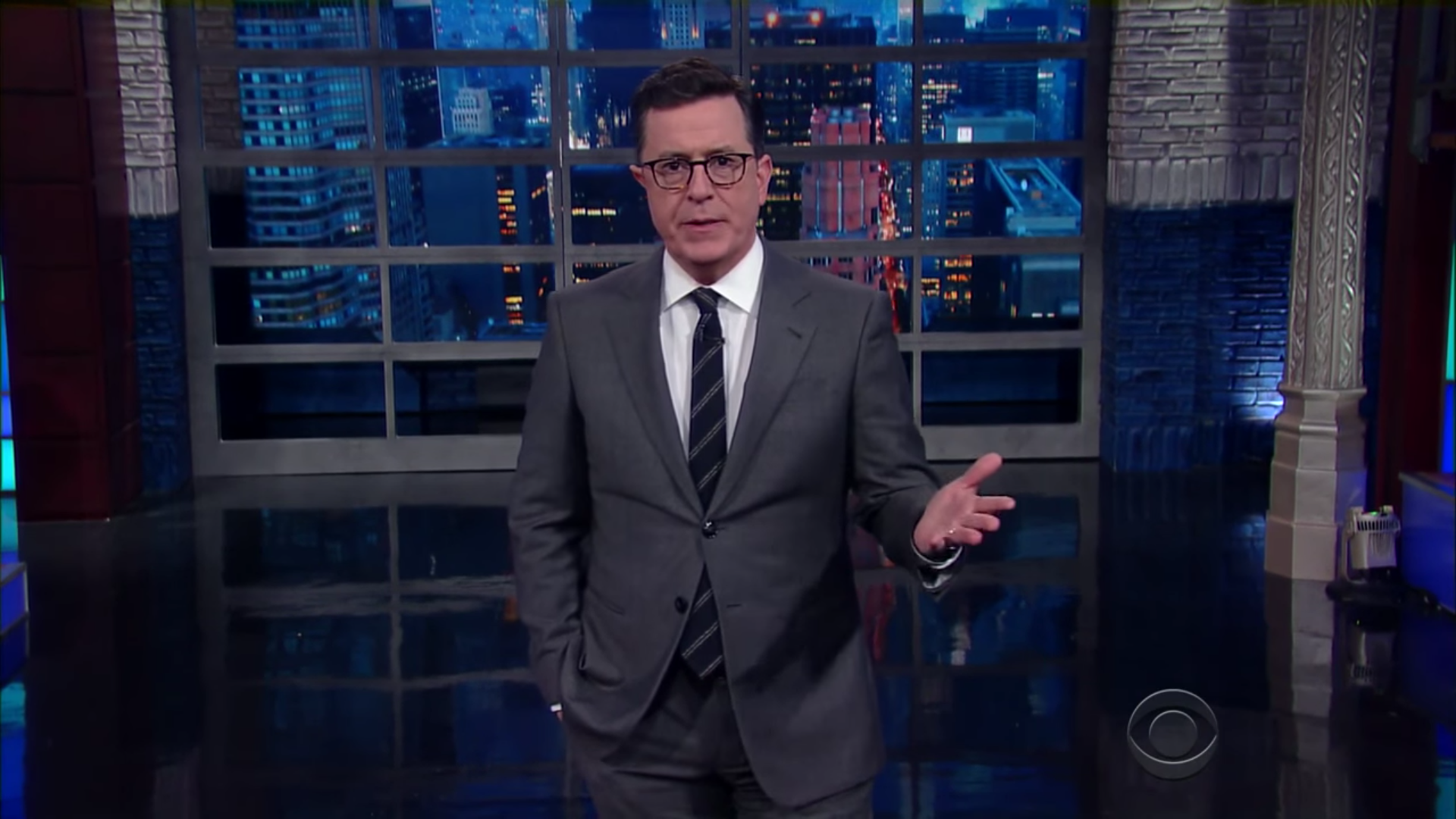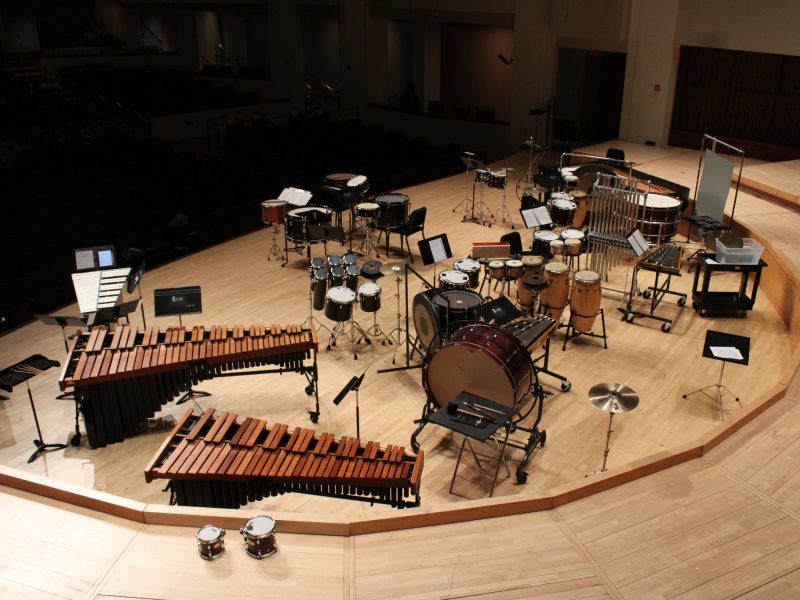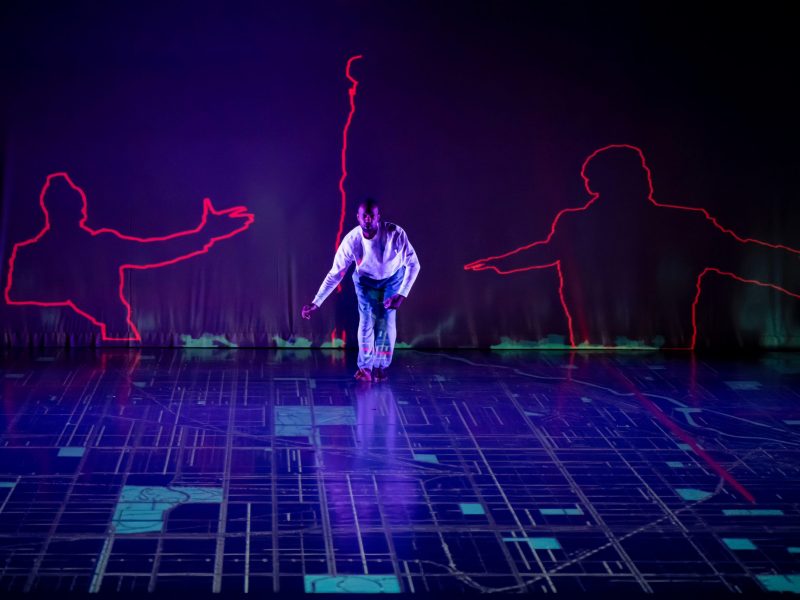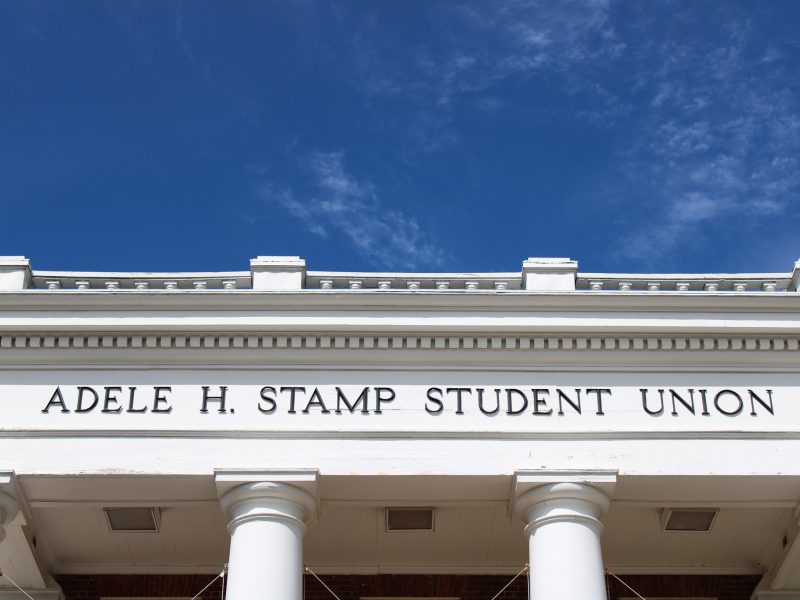An old friend visited the set of The Late Show With Stephen Colbert last Thursday. He was a welcome guest after two seasons of the host stumbling through the motions of his newer, bigger television gig. His name is Stephen Colbert, not to be confused with the host or the host’s conservative pundit alter ego. He was actually the twin brother of said alter ego. Sound confusing? It was. But that’s what made it great.
In a tribute to former President Obama on the very last day of his presidency, Colbert decided to whip out a ghost of his television past in order to thank Obama one last time. It was only a few years ago that Colbert was completely wrapped up in playing “Stephen Colbert,” the mouthy ultra-conservative political commentator who gained a cultish following while starring in the satirical Colbert Report.
But the character “Stephen Colbert,” who starred in The Report, couldn’t technically appear on The Late Show because he’s still under contract with Comedy Central. In a not-so-tricky dodge of television laws, Colbert simply said that it wasn’t actually his alter ego coming to do the segment; it was his alter-ego’s twin brother, with the exact same name and persona. It was Colbert playing “Colbert” playing “‘Colbert.'”
The segment was a reminder of a more pointed political time in Colbert’s career, when his satirical playground was seemingly unrestricted and miles long — when he could play devilishly behind the façade of a madman. It was the kind of comedy that involved wielding Captain America shields and the cawing of majestic bald eagles, but that also managed to win a Peabody Award in 2012 for its handling and coverage of super PACs. Now, Colbert is simply Colbert, no quotations needed — a change that hasn’t necessarily gone smoothly.
It’s strange and heartbreaking to use the phrase “sellout” in reference to Colbert’s career change. The strategy involved in taking 10 years of a ridiculous, and ridiculously successful, political program and funneling it all into the format of a much more classically structured and storied late night talk show could not be easy to devise. But it’s hard not to yearn for Colbert’s brasher and absurdly honest times in an age when the lines between politics and memes are more blurred than ever.
How do you find the common ground between Colbert openly mocking Bill O’ Reilly to the point of calling him “papa bear” on The Report and Colbert sitting him down on Late Show for a far friendlier political chat full of downplayed repartee? It’s one of many questions I’m sure Late Show writers have been desperately trying to answer.
I would like to think that the addition of his popular Report persona to Late Night wasn’t a desperate attempt at more views on a YouTube video, but a calculated decision to bring the elements most successful in the past into Colbert’s newfound identity. It’s a formula that’s hard to perfect but, with maybe one last cocked-eyebrow hurrah from his alter-ego, Colbert is finally beginning to find his place in the late night world.



